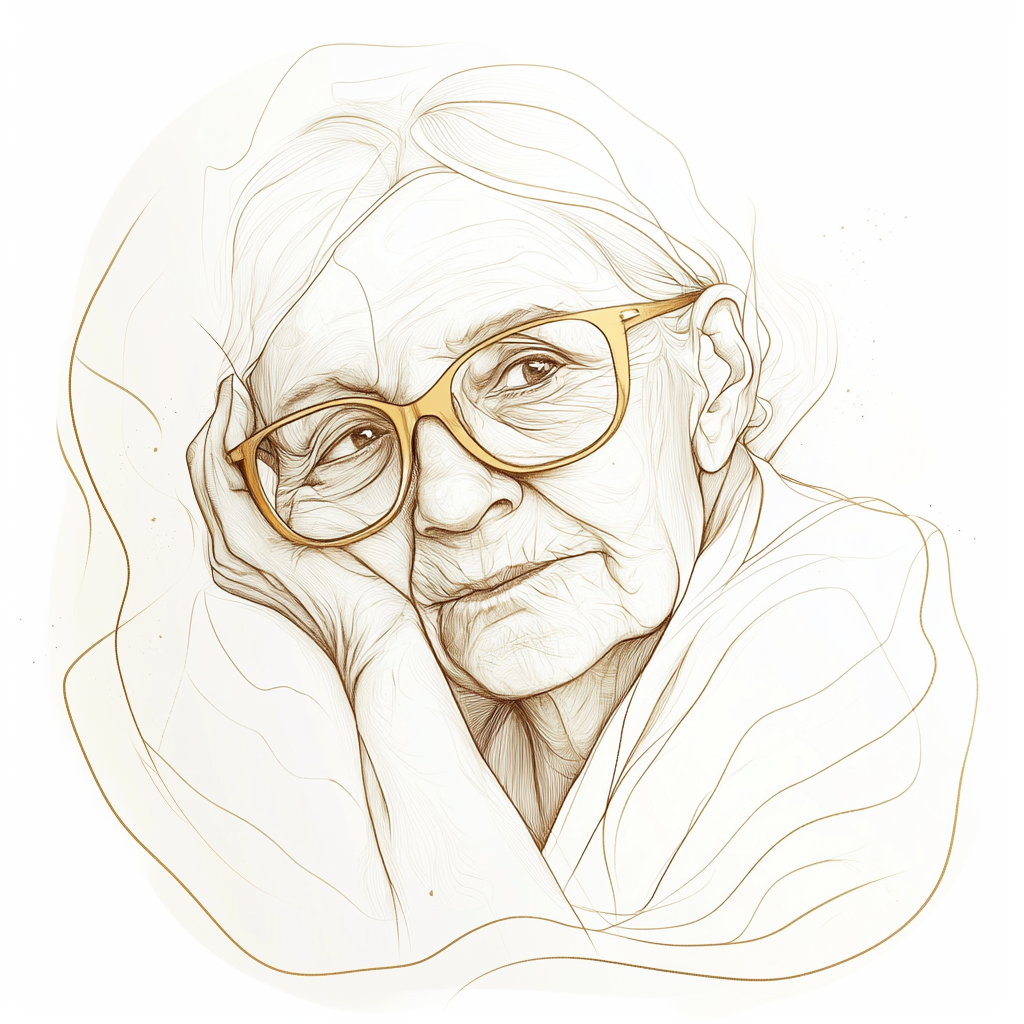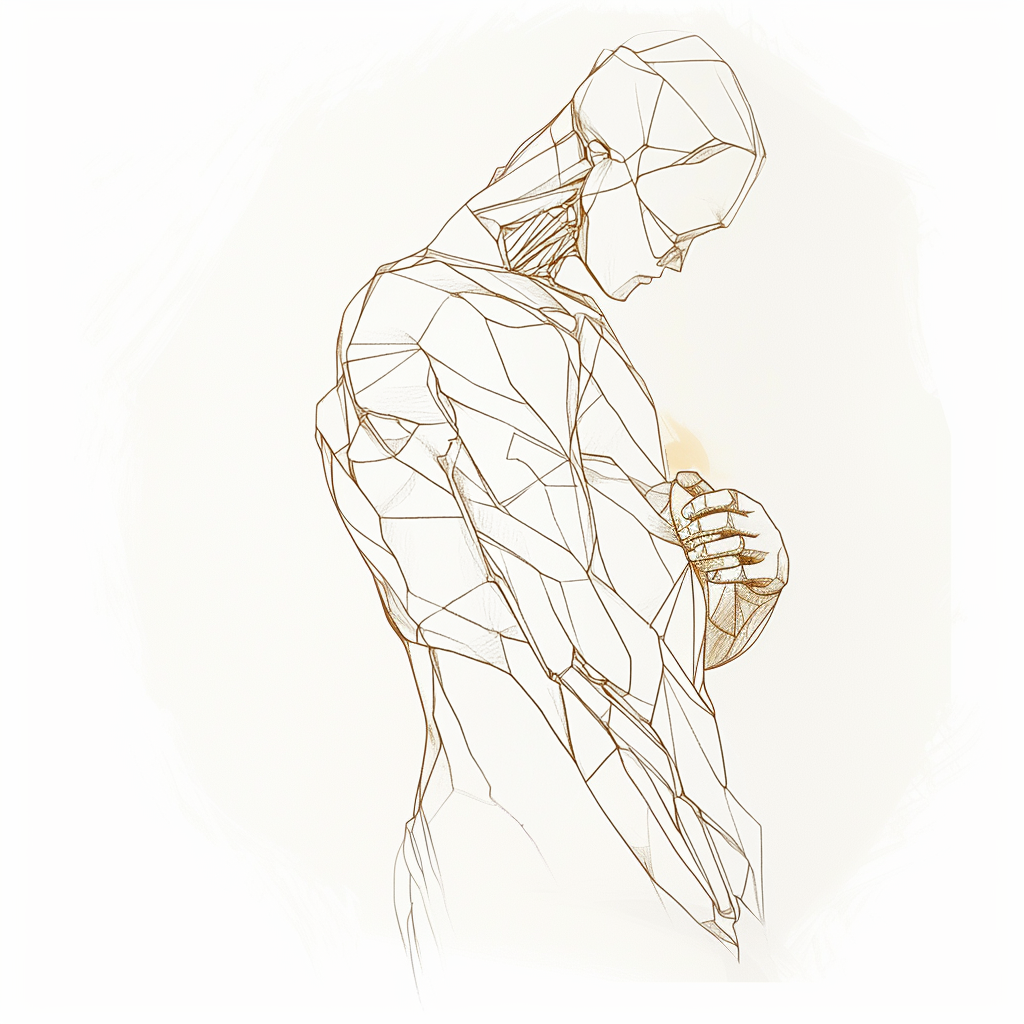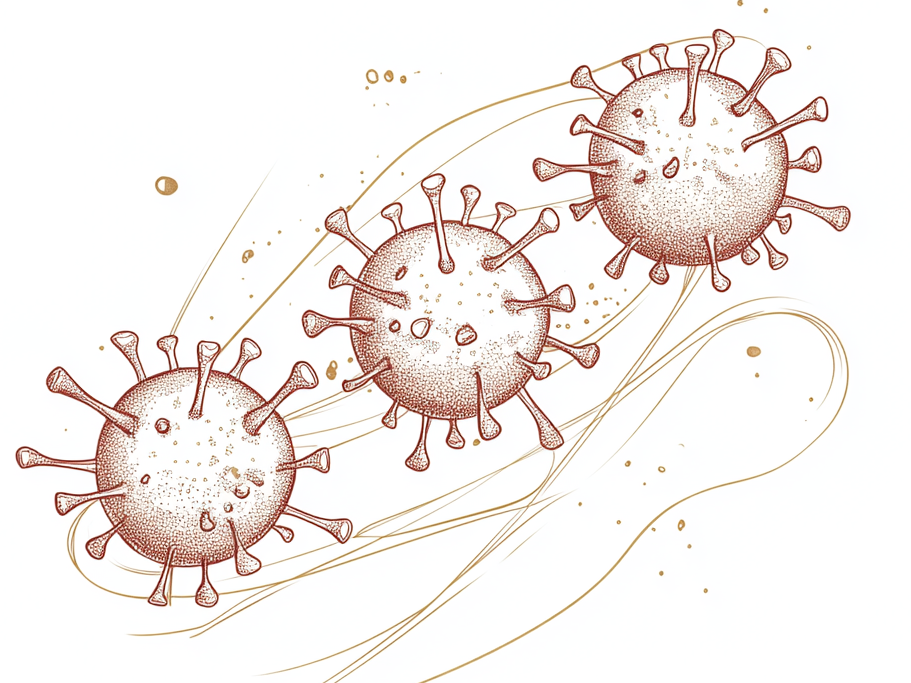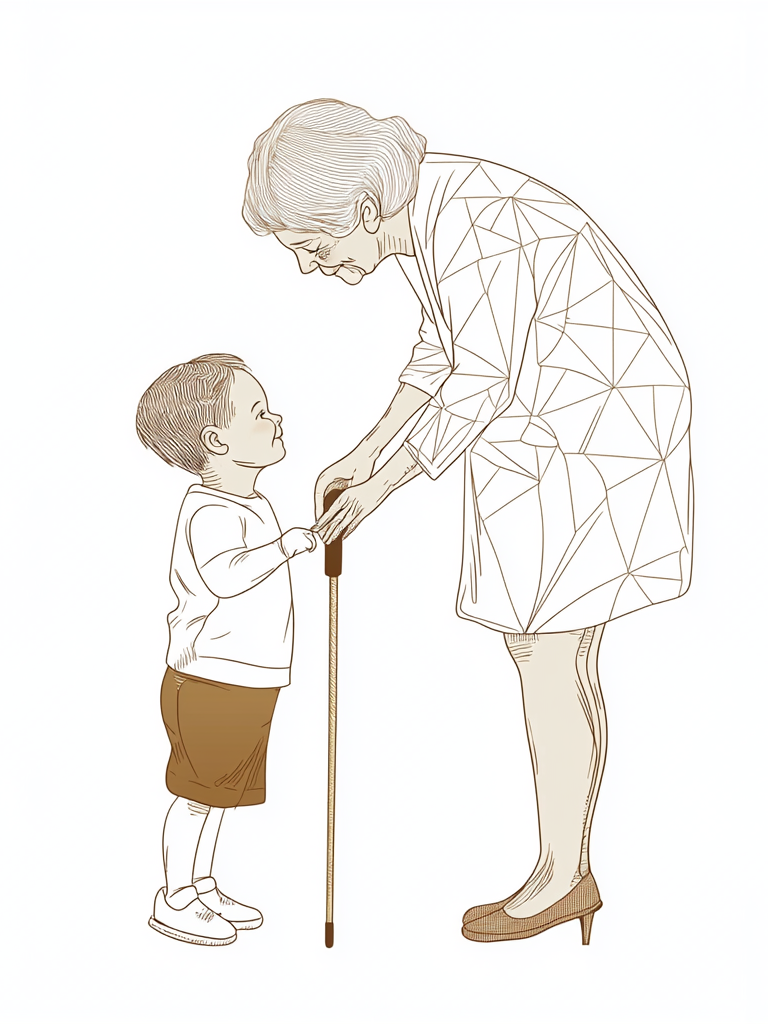Click play to listen to a deep dive podcast – like overview of this story. This overview was created using AI, and may contain some inaccuracies. –>
post written by Jade on June 4, 2025
I used to think I knew a lot about what aging looked like. Often, I would even share my ‘knowledge’ with others, confident that aging either affected your physical body, leaving your memories intact, or would attack your brain and memory, mostly leaving your body well. That’s what I observed, what I understood. MS has messed all of that up.

I used to work at a nursing home, and another one before that. For the most part, I noticed that the residents that had dementia were usually pretty able to walk around. They often did not have physical decline. Well, not at the start of their disease at least. Eventually, they would forget how to use their body in the same way they were forgetting everything else. Often, as the social worker, I would talk with the family members of my residents about this. Dementia was often hardest for the family. They had to watch their loved ones lose all of their personality and who they are. At the beginning of their disease progression, I am sure that the resident was aware of it, but by the time they needed 24 hour care, they often no longer were.

Then, there were the residents who’s physical bodies were giving out on them. They were, sometimes painfully, aware of their decline. For some of them, this would also cause or increase their mental health challenges as well. Depression mostly. It made sense to me that losing control and autonomy would cause them to struggle internally.
For some of my residents, their mental health was the primary reason they needed 24 hour care. Psychiatric diagnoses may have showed up in the most unique ways for my residents. For some, they had been unable to care for themselves physically due to the immense pain they were experiencing mentally. For others, they had alienated themselves, and family members were no longer able to care for them. Trauma from time at war, drug induced schizophrenia in adolescence, alcoholism, and drug addictions.
These people often had the least amount of external support. Little to no visitors, and even staff were often less likely to want to spend time with them and hear their stories. It was curious to me that there was a perception that these residents had caused their illness, and therefore deserved their sorrow.
Again, as the social worker, there was also the perception that I could “fix” them, and their problems because they were “so hard to deal with.” I learned to love that part of my job. The part where I talk with the people that were left behind. You know, they truly had some of the best stories! Like anyone else, they wanted to be heard. They wanted to matter. And to me, genuinely, they did matter.

I worked in this setting for about 6 years in total, including during the COVID19 pandemic. Starting in 2020 I decided to go back to school to get a masters degree in counseling. My sister was the catalyst to opening up this idea and opportunity for me. I am so glad that she let her big sister tag along on her journey.
Once I started on this path, I felt like this was what I was meant to be when I grew up. Reading the textbooks, and writing in posts with other students just felt so meaningful. It felt like I had found my purpose.

Now, as I go on my chronic illness journey with MS, I find some irony with all of this. First of all, the misperception I had that aging often effects either our mind or our bodies. The neurological system is literally everything. How I walk, how I talk, how I think and remember, how I see, muscles… all of them (like ALL of them.) Mental health, physical health, memory, and what I recently have found to be one of the most unfair parts of this disease is how I feel it is attacking my youth.
I’ve been 37 for about three weeks now. By the time I was about 15, I stopped thinking 30 was old and replaced it with 40. After working at a nursing home, I am not sure what age “old” is anymore, but it’s not supposed to be 37.
Others at my age have young kids they are trying to keep up with. 37 often means being deeply immersed in the demands of family life, juggling responsibilities with career goals. There’s a profound joy and pride in watching children grow, and it is also difficult to manage and balance greater responsibility in work.
When someone in their mid 30s say the feel old, people usually laugh because they’re not really old, they’re just noticing the normal changes a body goes through. Signs of aging become more noticeable, including drier skin, wrinkles, graying hair, and potential hormonal fluctuations. I haven’t minded that too much. I have noticed it, for sure, but for some reason that has been easier for me to embrace.
Chronic stress, managing responsibility, and changes in our bodies can create a sense of fatigue we have never felt before. Yet, often what comes along with that is a sense of resilience and wisdom. The struggles we have overcome have taught us something, and we may have an urge to teach others what we know.
What is interesting is this can go in both directions. We have the desire to teach our children, as well as our parents. There are things we notice the generations before and after us could benefit from learning about. And yet, we are still not “set in our ways,” yet. Well… some of us probably are. I don’t feel like I am.



At 37 we can rent a car, probably apply for a loan big enough to buy a house or a car… although, that is an expensive venture. We could even run for president at this age. Not that anyone close to that age has been president in a while. By now, we often have a pretty good idea of who we are, where we come from, and what matters to us. Yet, hopefully, we still feel that we have enough energy and youth left to enjoy it.
It feels like MS is trying to steal that from me. I’m not a fan of that part. Or any of it, honestly. The “normal,” aging of more gray hair, noticing wrinkles, and stopping myself from starting the “back in my day,” sentence truly don’t bother me. Having sore muscles when I lift something, and even the aches that seem to pop up when I sit too long don’t even bother me. Although, if I had an option I would not choose to have those, I feel like I can navigate them.
I hate that I need to go on another journey to know myself. I knew me. The skills I had gained throughout the years were serving me so well, I even felt able to teach others how to improve their own life. I was married, well.. I still am, to the most wonderful amazing man I can imagine. Although I did not give birth to them, I was (am) a bonus mom to two lovely daughters.
Parenthood is one of those tasks that really tests you. I would say daily, but sometimes it is more like every minute or second. You know how people say there is not a manual to life? I mean, that’s true, but I felt like I kind of was doing a great job managing and juggling all the things.
Until I wasn’t.
I didn’t have “needing a cane before 40,” on my bingo card. Or losing bowel control during a session. Or needing an eye patch to drive safely. For all of those to happen in less than 12 months, while I am also trying to manage and juggle all of the regular age appropriate struggles, really feels unfair. Like, if I just yell “BINGO,” can it all just go away? I win my $50 and go home?
Now, the only thing that feels secure is my relationships. Particularly with my family. Maddy, at almost 10, will often tell me she doesn’t want to hear the stories I am writing. She loves my other stories, and she often asks for a “Robin story,” when she’s bored. My feeling is she doesn’t want to think about it. However, she has fully embraced her job as the water girl. When I was starting to feel bad, or felt that I was asking too much by asking her to fill up my water, she corrected me. “Please keep asking me. I like doing it for you.” I remember one day when I was walking Maddy into school, and I asked her, “does it upset you when I have to bring my cane to walk?” She looked at me confused, and said, “no, why would it? That’s how you walk now because of MS.” She was so matter of fact about it. She didn’t have shame or embarrassment about it like I did.
Lauryn, who has been through a lot in her 15 years, has a way of showing stoic empathy. Being 15 is hard enough, but she also is navigating her own chronic illness, MRIs, medications, surgeries, insecurities. She has this way of just knowing what I need, without me needing to ask her. Things that I wouldn’t have even asked for, she just does. Like turning the AC up to “panic mode,” or telling me to sit down when she can see I’m struggling. Even giving me a hug when her sister leaves me hanging. When you know, you know. Others are not doing anything wrong by not knowing, but she has lived some of this, and she can see the signs of distress.
Mom. My mom, does so much for others. She’s very selfless. She also has this warmth about her. Somehow, she finds a way to give so much, and yet make me feel like I’m doing her a favor for letting her hang out with me. I have no idea how she does it. She’s taking care of my grandpa as she and her siblings split time caring for him, she babysits my niece and nephew, she’s working on rentals with her siblings. Then, with all of that, she’s here for me. Always.
There are so many people that I’m lucky to have in my life, and one day I hope I am able to write about each of them. To thank them for their unique abilities and caring. They all have provided me with strength and probably don’t even know it. This post though, like many others, I want to end with braging about my husband.
I remember talking with family members of my residents about how hard it was for them to watch their loved ones lose abilities and memories thy once had. Jared and I have been married for 4 and a half years, and I can barely remember my life before him. That is how much he means to me, and how much he has changed my life. Watching him navigate his vision impairment, and the way he doesn’t allow it to dictate what he can do, has been inspiring for me.
I used to think I was helpful for him, like I could drive him places and get things for him. Nope. His ability to navigate the world is what is helpful. When I was having trouble walking, and my mom’s walking sticks were not cutting it he didn’t get me one cane, he bought 3! Delivered next day from Amazon. Then, when I heard on the Messy podcast (which he calls “personal research”) how helpful a rolator might be, he got me one. The wheel chair came next. He is a solver. Sometimes “solvers,” can have a tendency to forget how important validation is. This is not true for Jared.
We have this thing we do. “Comfort or solutions?” For the most part, I don’t go to him for solutions, but he brings them to me. I desire the comfort, which he gives wholeheartedly, then before I know it he has already been researching and solving the problem. Usually, by the time I go to him, and tell him I’m ready for the next step he says, “it’s already on the way.” I don’t know how he is able to do both so beautifully, but he is.
I have noticed when I start these posts I don’t always know what my goal is, and I hope by the time I end it I have figured it out. This one was no different. I didn’t start with an end goal. However, I think I have found a reason for sharing this. Connection. Gratitude. Purpose. For me, these have been keys to resilience.
Chronic illness is hard. Literally every day is hard. Not always in the same way, but so far at least, every day has been hard. Yet, noticing connection, expressing gratitude, and finding purpose, also happen every day if I look for them.




